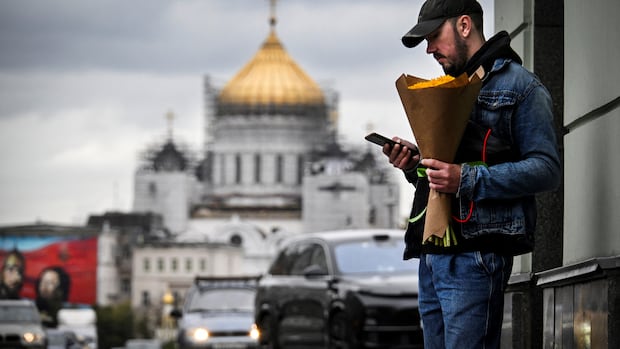When Boris Nadezhdin gets in his car to cross several Russian regions each month, the opposition politician always travels with two phones.
One is his official device. It’s attached to his main phone number; on it, he has downloaded the new Max app, something Russia is trying to position as an indispensable communication tool.
On his other phone, are the apps he uses for personal communication, along with a virtual private network, or VPN, that he relies on to circumvent Russia’s growing internet restrictions.
“I have made [the same decision] as a lot of my friends,” Nadezhdin said in an interview with CBC News from Dolgoprudny, a city just outside of Moscow.
“Unfortunately, we have very big problems with the internet, with mobile communications.”
The recent introduction of Max, which is owned by Russian media company VK, is the Kremlin’s latest effort to tighten control over the country’s digital space by throttling foreign platforms, either by blocking them or slowing them down so they are largely inaccessible.
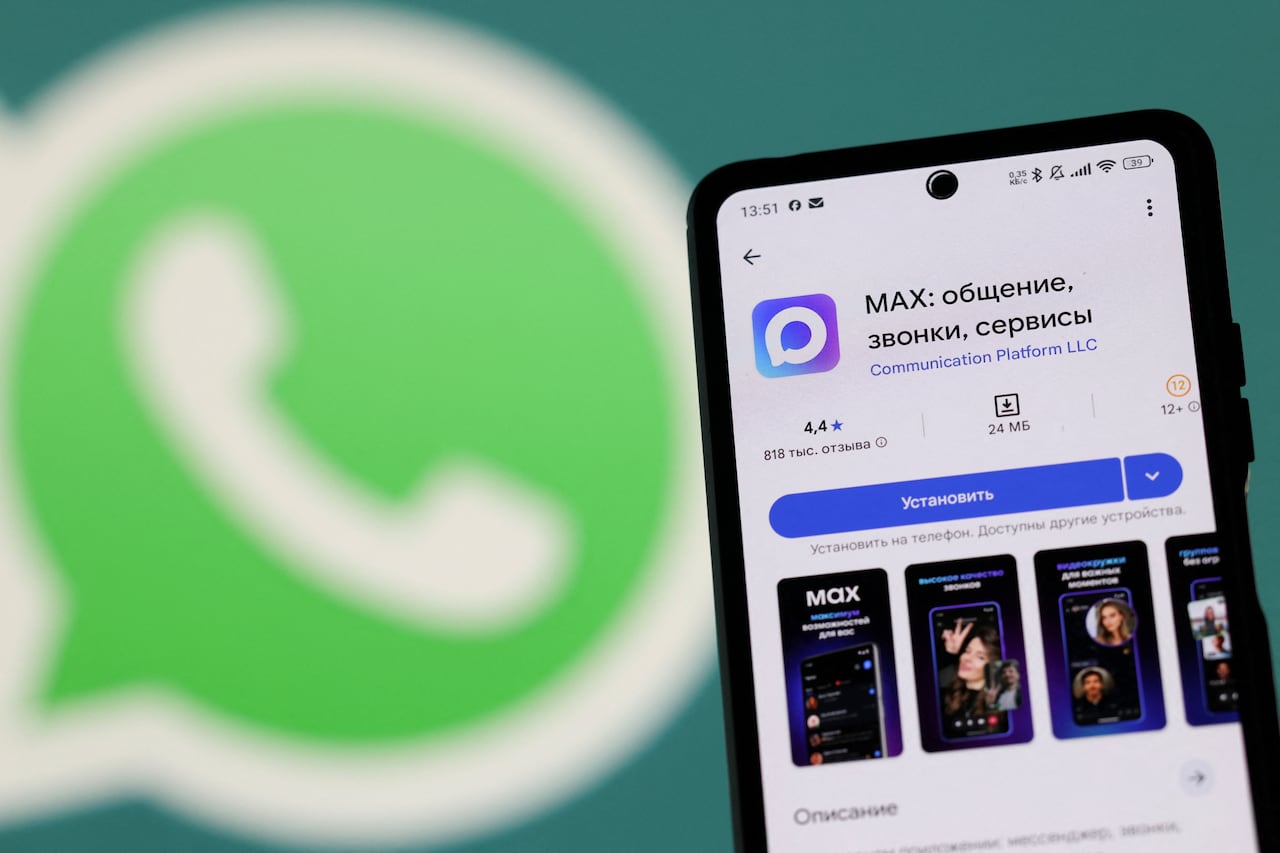 The Max app, created by the media company VK, is a messaging platform and a portal to access government services. (Ramil Sitdikov/Reuters Illustration)New ‘super app’
The Max app, created by the media company VK, is a messaging platform and a portal to access government services. (Ramil Sitdikov/Reuters Illustration)New ‘super app’
The Max app was first released as beta version in spring, but it now comes installed on all new phones sold in Russia and is being heavily promoted — and musicians, athletes and social influencers have been enlisted to pitch the platform that allows you to chat with friends or access government services.
It has drawn immediate comparisons to China’s WeChat, the most popular social networking app in China — and also accused of state-sponsored censorship.
In 2019, Russia passed a series of amendments that became known as the sovereign internet law, giving the government power to bring down the internet in the country, and create an isolated forum, which in theory, would disconnect Russia from the rest of the world wide web.
WATCH | Russia pushing Max app as it restricts others: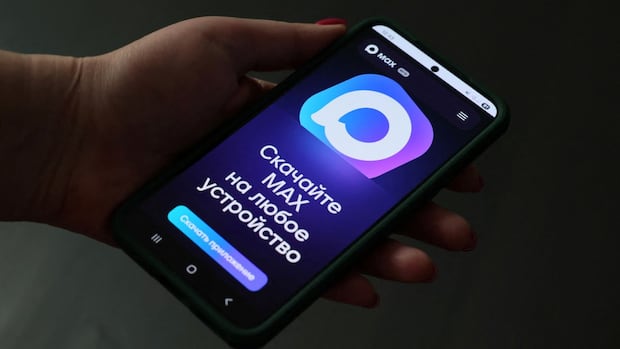
Russia pushes Max messaging app as WhatsApp, Telegram restricted
The Max messaging app, which now comes pre-installed on all new phones sold in Russia, is being heavily promoted by musicians, athletes and social influencers. Moscow also wants Russians with older phones to download Max, while making it harder to use platforms such as WhatsApp and Telegram.
Since then, Moscow has crafted its own version of the internet, which some have dubbed RUnet. It has tightened cyber restrictions, limited access to popular platforms like YouTube, and made it harder to access VPNs that allow users to circumvent the government’s digital roadblocks.
In many regions, residents frequently cannot access the internet through their phones, because networks have been disrupted. The government justifies these measures by citing national security concerns, often blaming the rising number of Ukrainian drone attacks on Russian military and industrial facilities.
“It is of course a problem,” said Nadezhdin. “But the decision to block the internet for everybody is a bad decision to solve this.”
Blocking what the Kremlin considers ‘extremist’
Nadezehin, who spoke to CBC News through a spotty Zoom connection, was barred last year from running for president against Vladimir Putin.
In July, he spoke out against a new law that punishes internet users for searching online for content that Russia deems “extremist.” More than 5,000 materials have been given that label, including things that have been deemed pro-Ukrainian and anti-Russian.
Under the law, people can receive a harsher punishment if they were using a VPN to access the materials.
While Russian hasn’t banned using a VPN outright, the government is making it harder to use them, with more than 250 different versions now blocked.
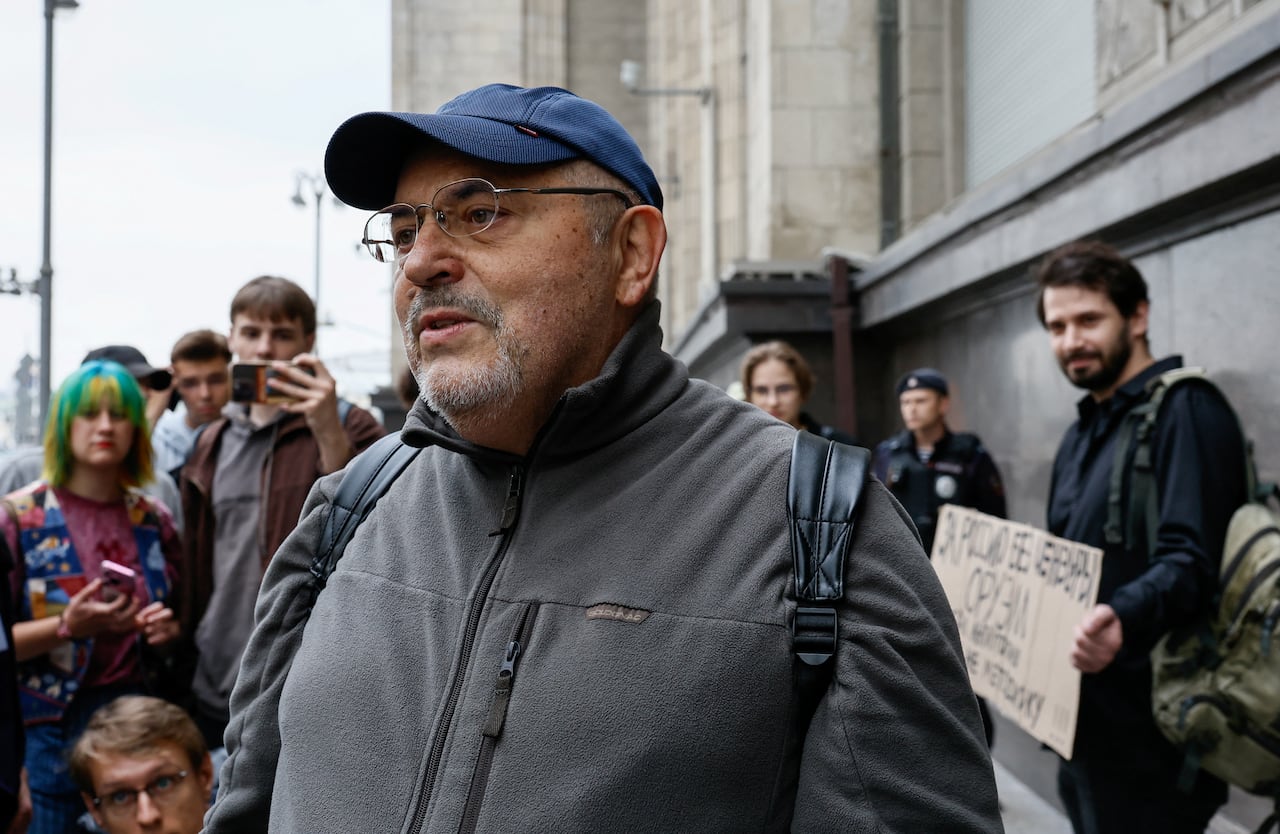 Russian opposition politician Boris Nadezhdin stands in front of journalists in Moscow on July 22, 2025, to protest legislation that imposes restrictions on internet searches. (Yulia Morozova/Reuters)Restrictions and slowdowns
Russian opposition politician Boris Nadezhdin stands in front of journalists in Moscow on July 22, 2025, to protest legislation that imposes restrictions on internet searches. (Yulia Morozova/Reuters)Restrictions and slowdowns
In recent weeks, users of the popular messaging platforms WhatsApp and Telegram have reported that it is nearly impossible to make a call with the apps, as the audio sounds distorted by a large buzz.
Mikhail M., who only wanted to be identified by his first name and last initial given his country’s crackdown on anyone critical of the regime, is one of tens of millions of Russians who rely on Whatsapp and Telegram to connect with family and friends, including those who live overseas.
Using a VPN often means he is able to get a call out, but not always.
“I tried to talk with a friend on Whatsapp but everything was blocked so hard that it didn’t help — and the connection kept dropping,” the Moscow resident told CBC News through the Telegram app. “Sometimes you have to try one app first, and it works so poorly, then we switch to another. You are always living in anticipation of the next wave of blockings.”
Sergey K., who also requested not be identified by his full name for the same reason as Mikhail, says that even if the government takes further steps to restrict Whatsapp, he will not download Max.
“I more or less understand that everything sent in Max will be accessed by security services,” he said. “Even if right now everything I exchange in [messages] is legal and legitimate … it is completely unclear what will become a prohibited thing in Russia.”
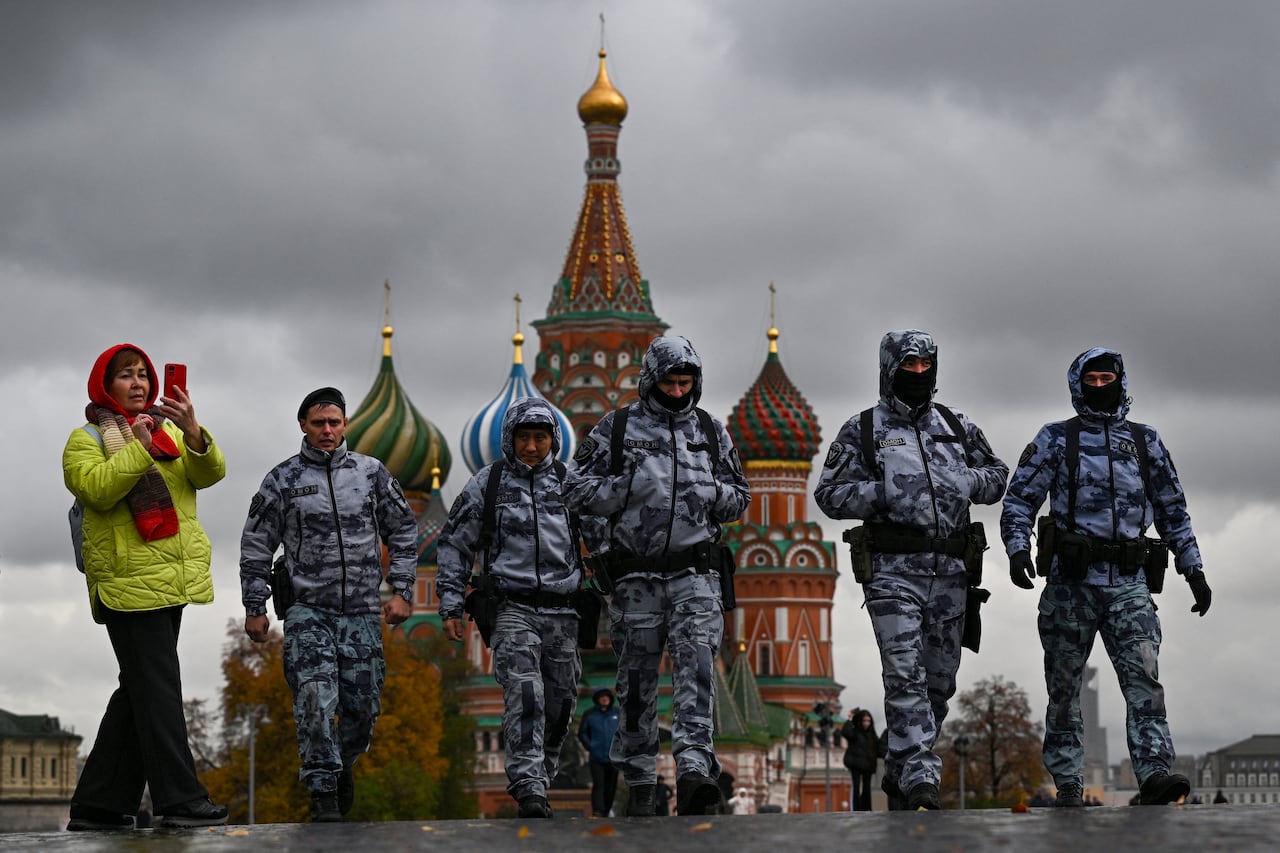 A woman uses her smartphone as riot police walk along Red Square in front of St. Basil’s Cathedral in central Moscow on Oct. 14. (Olesya Kurpyayeva/AFP via Getty Images)The potential for surveillance
A woman uses her smartphone as riot police walk along Red Square in front of St. Basil’s Cathedral in central Moscow on Oct. 14. (Olesya Kurpyayeva/AFP via Getty Images)The potential for surveillance
VK says more than 40 million users have downloaded Max so far and have sent more than two billion messages since its launch.
Sarkis Darbinyan, a cyber lawyer and co-founder of RKS global, an organization advocating for digital rights in Russia and post-Soviet countries, was part of a team that tested Max to see what risks users could face if they downloaded it.
Under Russian law, Max has to collect and store user data, including messages and documents for up to six months, and turn it over to law enforcement if asked.
Darbinyan says the app, which doesn’t provide end-to-end encryption, doesn’t currently engage in default surveillance of users, but he noted that it does have “significant surveillance potential.”
He advises that if users need to download it, they should try to put it on a separate device.
“It looks like [Max] is the last element to build the sovereign Russian internet, because you cannot have a sovereign internet when Russians use the messengers that annoy the Kremlin a lot, “ Darbinyan said in a Zoom interview from Portugal, where he now lives after leaving Russia.
 Anastasiia Kruope, a researcher with Human Rights Watch believes that Russian officials are using national security as an excuse to test how far they can restrict the country’s internet. (Submitted by Anastasiia Kruope)Internet blackouts
Anastasiia Kruope, a researcher with Human Rights Watch believes that Russian officials are using national security as an excuse to test how far they can restrict the country’s internet. (Submitted by Anastasiia Kruope)Internet blackouts
Since Russia invaded Ukraine in 2022, several regions have experienced frequent disruptions to mobile internet. Reports of outages surged over the summer, with residents losing access to GPS navigation and other online services.
Russian authorities say the measures are part of their defence against Ukrainian drone attacks, which increased throughout the summer. While at least one state television newscast in Vladimir, Russia, a city about 160 kilometres east of Moscow tried to paint the outages as a satisfying digital detox, Anastasiia Kruope, a researcher with Human Rights Watch believes Russia is testing how far it can restrict the network.
The mobile internet has gone offline during protests — and during the funeral of opposition leader Alexei Navalny in 2024.
“This is a very convenient sort of setting, an environment to experiment with things like, what if we just provide access to only things that we find good and essential?” said Kruope who wrote a report published in the summer that examines Russia’s state censorship and control of the internet.
“On the one hand, [authorities] can find an excuse saying we are shutting down access because we are taking care of national security, but on the other hand we can see they are also taking advantage of that for their experiments.”

